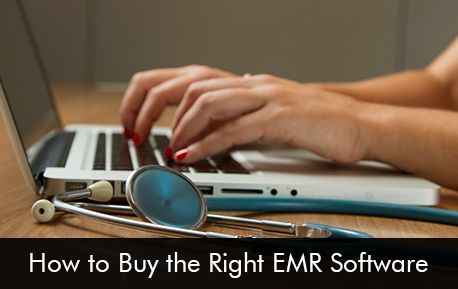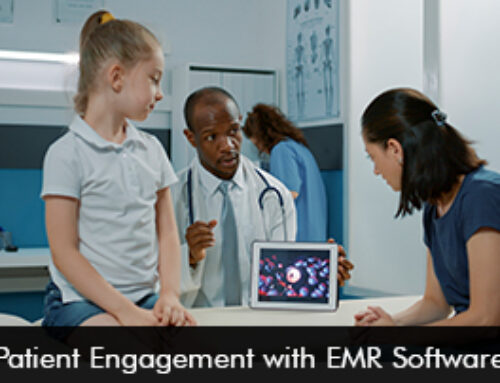As a clinician, you need an EMR Software system that works well for your practice and gives you the right clinical and cost benefits. Buying the wrong EMR for your practice can be a nightmare. In order to help you buy the right EMR software, we have outlined the following tips which will ensure you make the best Electronic Medical Records software purchase.
You can’t afford to buy an EMR system that doesn’t fit into your workflow. To make this daunting task less stressful here’s some practical advice on how to get the right EMR software.
- Determine your Needs – It’s very crucial that you assess your current needs. You need to identify your high priority requirements and see if the EMR options fit them. The set of features and tools should be for your specialty practice and designed for your practice size. If you have a larger practice set up, your needs will also be greater. A specialty-specific EMR could be a better choice for you.
- Look into Certified EMR software solutions – Your EMR software should provide HIPAA Compliance and should be certified for Meaningful Use. These certifications ensure that sensitive patient data is secured. If your software offers a patient portal platform service make sure it offers privacy round the clock.
- Consider all important features – It is important that the Electronic Medical Records software system provides a set of robust tools and features that would help your practice get productive. Make sure it has features of in-built templates a scheduling module and complete task management features.
- Request a Demo – An EMR demo will show how the software system actually works. Before the demo is scheduled it is important to pinpoint and make a list of important things that you are looking for in the medical software.
- Client Reviews are Helpful – Do consider client reviews before the actual purchase. You can read online client reviews to assess the functionality and overall experience of users. If reading reviews don’t satisfy you, you can visit a practice that is using the software system you are planning to buy.
- Customer Support – A good customer support means that the vendor has your back in times when you have issues. The customer service should be responsive and ready to offer help when you actually need it. Usually, large EMR vendors offer round the clock support. The user is able to talk in real-time via chat or call. Some vendors have websites that include helpful blogs that have answers to most common issues, this way the user is able to get a prompt response to issues without having to make a call.
You might want to include your staff members in the selection process to help in the successful decision of the EMR software. Some practices might seek the assistance of a professional EMR consultant to make the final decision more fruitful and less stressful.
Resources:
How to Choose the Right Electronic Medical Records (EMR) Software. (2020). Retrieved 24 April 2020, from https://www.trinisys.com/2018/06/how-to-choose-the-right-electronic-medical-records-emr-software/
5 Steps to Buying the Right PM/EHR Software. (2020). Retrieved 24 April 2020, from https://www.carecloud.com/continuum/5-steps-buying-right-pm-ehr-software/
Buy the Right EMR Software for YOur Practice | PrognoCIS EHR. (2020). Retrieved 24 April 2020, from https://prognocis.com/how-to-buy-the-right-emr-software-for-your-practice/
How To Purchase The Right Electronic Medical Record (EMR) Software For Your Practice. (2020). Retrieved 24 April 2020, from http://www.binaryspectrum.com/electronicmedicalrecord/how-to-choose-the-right-EMR-for-your-practice.html
Guide, C. (2020). Choosing the Right EHR System for Your Medical Practice. Retrieved 24 April 2020, from https://www.businessnewsdaily.com/8578-choosing-an-ehr-system-for-your-medical-practice.html







